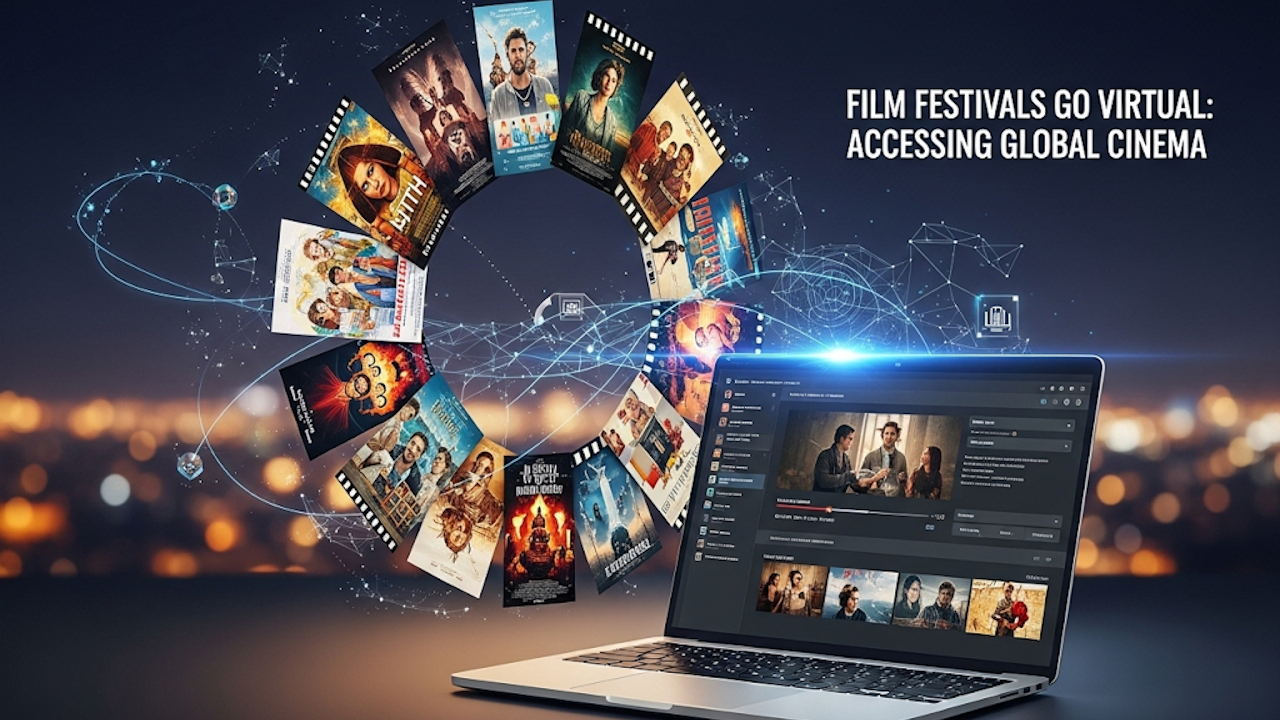The world of cinema has undergone a dramatic transformation, with film festivals at the forefront of this change. Once exclusive, in-person events held in specific cities, these showcases of global talent are now embracing virtual platforms, making them more accessible than ever before. This shift has not only redefined the festival experience but has also democratized access to independent and international films for audiences worldwide.
The Rise of the Digital Platform
The transition to a virtual model was accelerated by global events that necessitated a move away from large gatherings. However, this change was long overdue. It leverages technology to bridge geographical divides, allowing film enthusiasts from different continents to attend the same festival simultaneously. Platforms are now designed to replicate the traditional festival experience as closely as possible, offering virtual screening rooms, Q&A sessions with directors, and even digital networking lounges. This creates a new kind of community, one that is not limited by physical space.
Democratizing Film Access
One of the most significant benefits of virtual film festivals is the way they break down barriers to entry. Historically, attending a major festival required not only a ticket but also travel, accommodation, and a significant time commitment. This often made participation prohibitive for all but industry professionals and dedicated cinephiles with the means to attend. Virtual festivals, by contrast, make it possible for a student in London, an aspiring filmmaker in Lagos, or a film lover in Tokyo to watch the same new release at the same time, all from the comfort of their home. This opens up the world of global cinema to a broader and more diverse audience.
A New Era of Discovery
For filmmakers, virtual festivals present a unique opportunity to reach a wider audience. A film that might have only been seen by a few hundred people at an in-person screening can now be viewed by thousands, or even tens of thousands, globally. This expanded reach is invaluable for independent filmmakers who often struggle to find distribution. It allows them to build an audience and generate buzz for their work, leading to potential distribution deals and greater recognition. The virtual format also allows for more detailed data on viewership, providing valuable insights into audience engagement and preferences.
The Future is Hybrid
While virtual festivals have proven to be a success, they are unlikely to completely replace the in-person experience. The magic of a physical festival—the shared experience of watching a film in a packed theater, the impromptu conversations with fellow attendees, and the energy of a bustling festival hub—is something that cannot be fully replicated online. The future of film festivals is likely a hybrid model, combining the accessibility and reach of virtual platforms with the unique atmosphere and networking opportunities of physical events. This dual approach will offer the best of both worlds, ensuring that film festivals continue to evolve and thrive in the digital age, bringing global cinema to everyone, everywhere.

